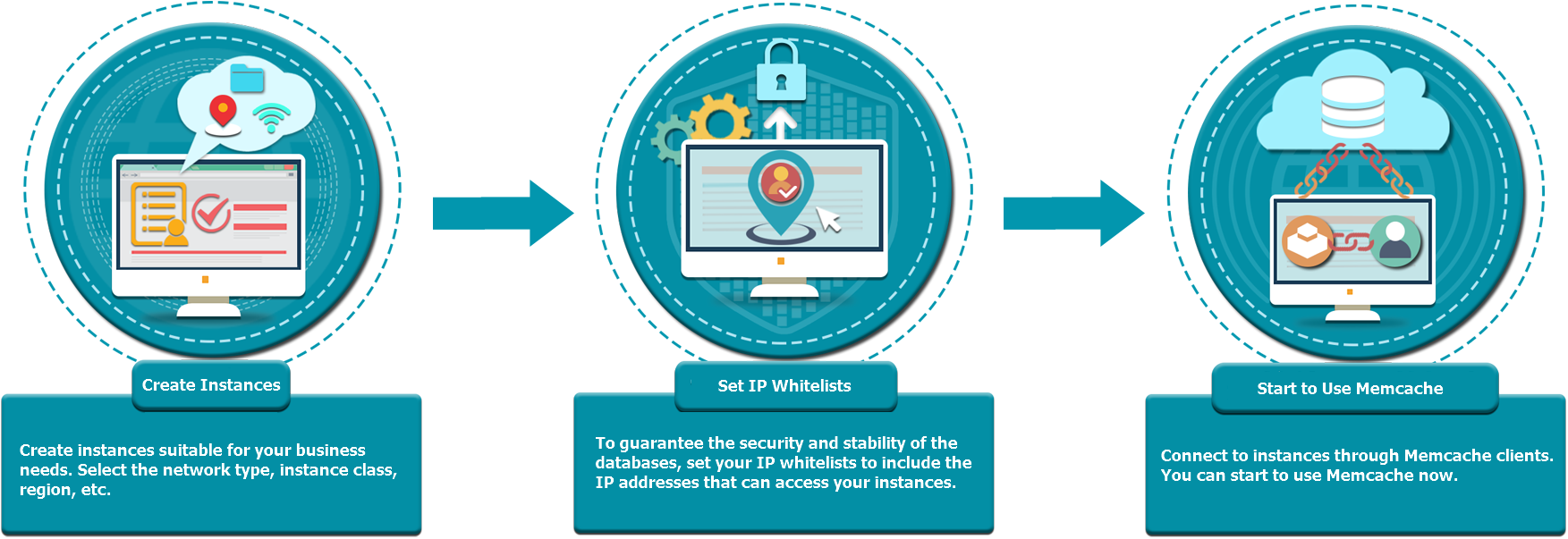This topic describes how to create an ApsaraDB for Memcache instance, connect to the instance, and use the instance.
Intended users
Users who create instances for the first time
Users who want to know how to connect to instances
Quick start flowchart
If this is the first time you use ApsaraDB for Memcache, you can refer to Limits and About the ApsaraDB for Memcache console.
Before you can use an instance, you must complete the following steps:
